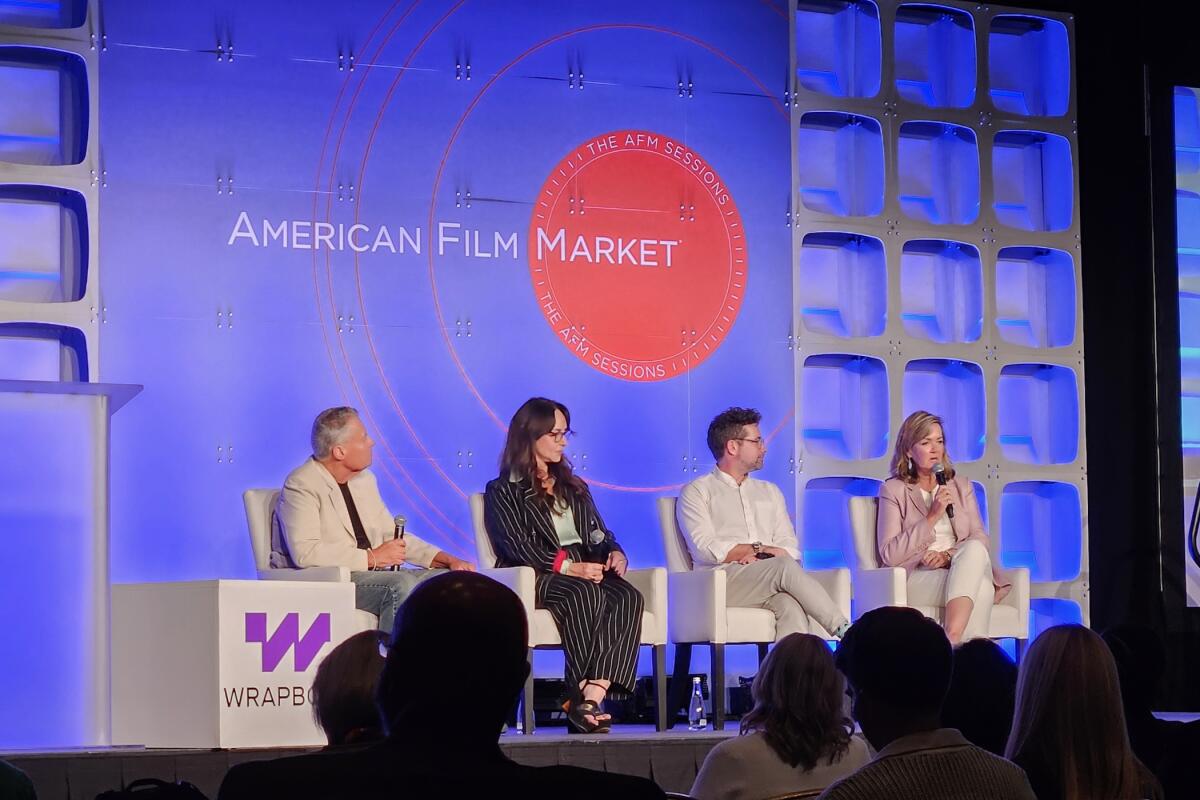
The Avenue's JJ Caruth Talks Audience Appeal at AFM Panel: The Main Takeaways Might Surprise You!
November 15, 2025
While factors such as genre, star power and built-in audience are important in acquiring or producing a successful film or series, gut instinct is also key, said panelists Nov. 12 during the 46th American Film Market in Los Angeles.
“You have to listen to your internal barometer,” said panelist Joe Lewis, founder and CEO, Amplify Pictures, during the panel “What Audiences Want: Producing Stories That Connect.” He noted that his production Fleabag was “not the easiest show to pitch.”
“Initially, it’s gut instinct for sure,” agreed JJ Caruth, president of The Avenue/Highland Film Group.
Still, more practical considerations also are part of the decision to back or acquire a production.
“We look for the most commercial genres,” Caruth said, noting that action and thrillers are strong genres because of the worldwide appeal. She added that star power is also important, and that her company looks for at least one, if not two, “A listers.”
“Is there a built-in audience somewhere?” added Paula Paizes, COO and president of production, Pressman Film, was one of the key questions in looking at a production, noting that actor, writer and comedian Iliza Shlesinger’s following was a consideration in backing her rom-com Chasing Summer.
“It’s filmmaker first, material first, and it’s about supporting that vision,” she said.
When considering talent, “we do look at a lot of social media stats,” Caruth said, exhorting actors to “get yourself onto social media.”
“It’s so important to have that presence and to have that reach,” she said, adding social media can also “turn up some red flags” on talent.
“We have a specific social media tool (Meltwater) that tells us the level of engagement that a specific actor or actress can achieve in a specific amount of time,” Caruth said.
Panelists also said they talk to buyers to gauge appeal.
It’s about “having a grasp on what things are worth across the market,” Lewis said.
The intended distribution platform for a project is also a consideration.
“We really work backwards from that,” Lewis said, adding that he’s looking at projects suitable for YouTube distribution.
Panelists also talked about the surprise successes and misses they’ve seen in their careers.
Caruth recalled a festival hit that was a fun action movie that “checked all the boxes,” had strong word of mouth and tallied a good Rotten Tomatoes score.
“Nobody went to see it,” she said. “We felt we had a winner and nobody cared.” The lesson: “Indie darlings … don’t necessarily please audiences,” she said.
On the other hand, The System was a surprise hit with a story about an underground fight ring set in a prison. With little star power and no money backing its theatrical release, it still succeeded because it targeted action fans looking for “really well-choreographed fight action.”
“This was a movie for a built-in audience,” she said of the film currently streaming on Tubi.
Lewis noted that some projects remain “criminally underseen,” pointing to the series I Love Dick, streaming on Amazon Prime.
“I always feel like not enough people have seen that show,” he said.
Lewis said he was happy that the documentary Come See Me in the Good Light, a movie about a poet with terminal cancer that premiered at the Sundance Film Festival, was picked up by Apple TV and will start streaming on the service Nov. 14.
“There’s a large audience for poetry that does not have a lot of representation,” he said.
Paizes said she has high hopes for The Monkey Wrench Gang, a “prestige project” based on the book by Edward Abbey with Ed Norton attached.
“It’s a romp into the sort of ecoterrorism world,” she said, calling it a “fun movie” that will appeal to the environmentally conscious audience, as well as a wider audience.
Panelists noted that the proliferation of platforms and content has made standing out harder.
“There’s a lot of noise out there, and you’ve got to rise above the fray,” Paizes said.
“It certainly was easier when there were less shows,” Lewis said, adding, “I can’t even comprehend the amount of digital content that’s out there.”
By Stephanie Prange, Media Play News